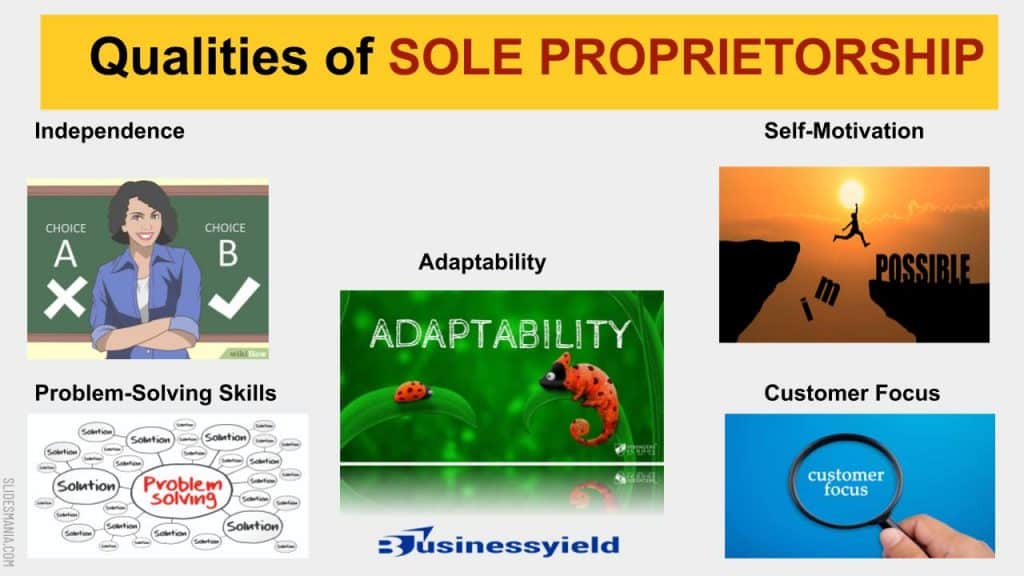A sole proprietorship is not just a one-person business, despite what many people believe. A sole proprietor can hire staff members, reaping the same rewards and obligations as any other company. There are rules and regulations about hiring employees as a sole proprietor, just like with any other type of business. You will learn more about the financial and legal ramifications of recruiting staff under this business structure by reading this article. In this article, let’s discover whether a lone proprietor can hire staff members and how to do it effectively.
Key Points
- Yes, a sole proprietor has the same benefits and obligations as any other type of business, including the ability to hire staff.
- When hiring staff, sole proprietors are subject to particular laws on sole proprietorship employment.
- As a sole proprietor, you must obtain an Employer Identification Number (EIN) to hire workers.
- Hiring family members has unique issues and tax ramifications.
- As a sole proprietor’s business grows, they may switch to a Limited Liability Company (LLC).
Who is a sole proprietor?
Most people who are considering starting their own business have heard the term “sole proprietorship” numerous times. What kind of company is a sole proprietorship, then?
As a sole proprietor, you run your business alone, no matter how large or small. With this form, there is no separation between the owner and the business. For entrepreneurs, this business structure is a simple choice.
Operating as a sole proprietor is a popular choice among single entrepreneurs.

What are the characteristics of a sole proprietor?
Here I will introduce you to the common characteristics of a sole proprietor.
#1. You take total control:
The operations of a sole proprietorship are entirely within your jurisdiction. Therefore, you do not need other members or a board. A sole proprietorship gives you complete ownership of your company and operational management.
#2. There is no distancing:
The proprietor (you) and the company are the same. When you are filing your business activity, you, as a sole proprietor, use your personal 1040 tax return. If you also choose, you can use their personal bank accounts.
#3. Personal Liability:
As a sole proprietor, the debt to your business is your responsibility. This means that you are held responsible if the business is sued or faces loss. Additionally, you could have to pledge personal belongings as security for a loan.
#4. Individual taxation:
You pay Social Security and Medicare taxes based on your net income. This is because all company expenses are deductible by sole owners (you) from their earnings.
#5. Fewer requirements:
Sole proprietors don’t register a business. If you choose to use a different name, you merely need to register a DBA. There are no reporting obligations for sole proprietors. All they have to do is file taxes annually.
Can a sole proprietor have employees?
Yes, sole proprietors can have employees. Many sole proprietors begin with family members, but employing individuals—whether or not they are related—adds another level of difficulty to managing a firm. This is because payroll taxes must be filed and remitted, employees must be paid, and employment laws must be followed by sole owners.
How do I add an employee to a sole proprietorship?
A sole proprietorship can also be expanded by adding owners and creating a limited liability corporation (LLC) or by adding passive investors as limited partners. You have to register with the IRS and take care of employee tax matters if you hire staff.
Read Also: What Is an LLC Business: Complete Guide, LLC ADVANTAGES AND DISADVANTAGES: What you Need!!! and LLC vs CORPORATION: The Pros and Cons
What does a sole proprietor need to hire employees?
Here I have researched a list of tax accounts and supporting documents that you need to hire employees as a sole proprietor:
#1. Employer Identification Number, or EIN:
First, before hiring staff, a lone proprietor must get an EIN—a nine-digit ID number—from the IRS. The federal government uses this ID number to monitor the employer’s tax remittances from employee withholdings, the employer’s portion of FICA taxes (Social Security and Medicare), and the employer’s payment of Federal Unemployment Tax Administration (FUTA) taxes.
Features of Employer Identification Number (EIN) (A Federal Tax Identification Number)
#2. Payroll Tax Registration with the State and Local Governments:
Payroll tax accounts are normally required of employers in the states and localities where they have workers. Business owners should learn about the regulations that relate to them and, if necessary, get advice from an accountant. The procedures and prerequisites differ.
Note that state and municipal payroll tax IDs are used for tax reporting and monitoring purposes about employee withholdings and payments to the state unemployment insurance program, just like the IRS utilizes an EIN.
#3. Workers’ Compensation Insurance Policy:
To pay for medical expenses, rehabilitation costs, and lost wages for employees who are injured or ill at work, many states mandate that employers maintain workers’ compensation insurance.
#4. Form W-4:
Employees must fill out a Form W-4 (Individual Withholding Certificate) for their employer to determine how much income tax to deduct from their paycheck each pay period.
Read More: W-4 vs W-2: What Is the Difference
#5. State Tax Withholding Form:
For you to know the appropriate amount of state income tax to withhold, certain states could mandate that businesses ask their staff to fill out an official state form. Some states follow the W-4 withholdings.
#6. Form I-9:
You need a completed Form I-9 (Employment Eligibility Authorization) to confirm the person’s legal right to work in the country.
Additional paperwork and information from new personnel could also be required by a lone proprietor. Depending on the company and the state in which the individual works, different rules may apply.
Here are examples of documents you need to make new hires:
- Signed offer letter
- Bank account information (if the employee’s pay will be issued through direct deposit)
- Forms to authorize enrollment in benefits (such as retirement savings plans and health care plans)
- Signed acknowledgment of receipt of workplace policy documents or employee handbook.
Can a sole proprietor employ himself?
No, a sole proprietor cannot employ himself. This is because a sole proprietor is not on the corporate payroll and is not an employee of the company. The sole proprietor takes “owner’s draws,” which is money taken out of the business’s revenues for personal use, as opposed to receiving a salary or pay from the company. Usually, this is done by writing business checks to oneself.
Therefore, since no taxes are deducted from the owner’s income, the lone proprietor is responsible for paying the government an estimated quarterly tax payment based on the estimated taxable earnings of the business each quarter. These quarterly tax payments cover self-employment taxes (Medicare and Social Security) as well as income taxes.
Can a sole proprietor employ their spouse?
Yes, a sole proprietor can employ their spouse. However, if a lone entrepreneur employs their spouse, they will have to pay income tax and FICA (Social Security and Medicare) taxes on their salaries in addition to being placed on the payroll. The federal unemployment tax, or FUTA, does not apply to their salaries, though.
But in a case where a spouse works as a partner in the company, they receive owner’s draws and are not paid through a regular payroll system.
Can a sole proprietor hire their children?
Yes, a sole proprietor can employ their children. But, a lone proprietor must abide by child labor laws if they employ kids—even their own.
Depending on their age, child laborers’ tax treatment varies. The following regulations are often enforced by the federal government:
- FICA taxes do not apply to children under the age of 18 (Social Security and Medicare).
- Employers are exempt from paying the Federal Unemployment Act (FUTA) on child wages under the age of 21.
- Any child of any age is required to pay income tax on their earnings. Employers are required to deduct that tax from the child’s income.
I recommend that business owners inquire with their state and local governments to find out if they exempt children from income taxes, as state and municipal tax regulations differ.
Can sole proprietors handle payroll on their own?
Yes, sole proprietors can handle payroll, withholdings, and net income on their own, but it can be a laborious and confusing task. Payroll software like Gusto, or Paychex can help streamline and automate the process of hiring a bookkeeper, accountant, or payroll services provider.
However, I advise sole proprietors to hire experts in this field because inaccurate payroll calculations, late payments to agencies, and inaccurate payroll records can lead to expensive fines.
Read more about payroll in these articles: HOW TO START PAYROLL FOR SMALL BUSINESS: 2023 Best Easy Guide, Small Business Payroll: Best Payroll Software UK Service and PAYROLL LOAN: Definition &; Best Government Practices for any Business
Can a sole proprietor have 1099 employees?
Yes, a sole proprietor can have 1099 employees. A “1099 employee” refers to an “independent contractor.” Individuals hired by a corporation to perform work are known as independent contractors but they are not paid by the firm. Rather, they send the company bills, which are then typically paid for via electronic cash transfers, checks, or payment apps like PayPal.
What employment laws should small businesses know?
Federal and state laws are in place to safeguard workers’ rights and safety. On its official website, the U.S. Department of Labor summarizes its major laws. When hiring staff, sole proprietors should confirm if state laws about employment apply to them. Business owners might get assistance in understanding their responsibilities from an attorney or human resources specialist.
How many employees can a sole proprietor have?
The number of workers who can be employed by a sole proprietor is unlimited. Nevertheless, I will advise sole proprietors not to hire too many staff members, as it could expose the company owner to more legal problems.
Can a sole proprietor have W2 employees?
A W2 employee is an employee whose employer sends them a W2 tax form. W2 workers are typically thought of as the most conventional type of worker.
Therefore, a sole proprietor can have W2 employees. You can read more W2 employees in this article; W2 EMPLOYEE: What It Is, How It Work & Differences, and W2 CONTRACT: What Does It Mean to Work Under a W2 Contract as an Employee
Can I put myself on the payroll as a sole proprietor?
Owners who operate as sole proprietors pay themselves out of the profits made by the business. This is usually accomplished by writing a business check payable to the business owner. Alternatively, they can take a draw by taking money out of the business or, if permitted by their bank, moving money from their business checking account to their personal checking account.
What is the best way to pay employees in a small business?
I feel the best way for small businesses to pay their staff is hourly. When it comes to managing payroll for your team, here are some fundamental steps I will advise you to take:
- Gather payroll forms and employee data.
- Determine their gross pay by adding the hours worked to their hourly rate.
- After deducting the necessary taxes, find the employee’s net compensation.
- Pay your staff via direct deposit or check.
- Payroll tax filing
- Keep your payroll records up-to-date and documented.
Sole Proprietorship Loan: All You Need To Know!!!
41+ BUSINESS TIPS FOR ENTREPRENEURS in 2023 (For Beginners & Pros)
SOLE PROPRIETORSHIP BUSINESSES: Easy Guide to Setting up One






